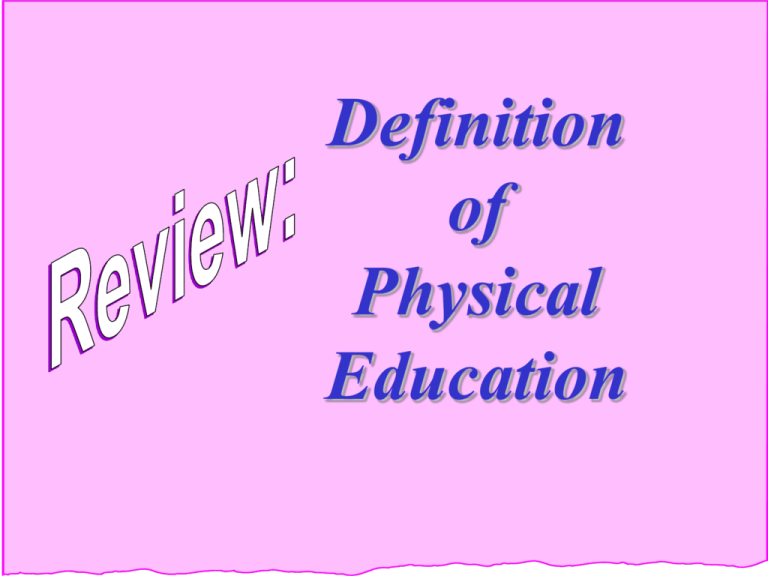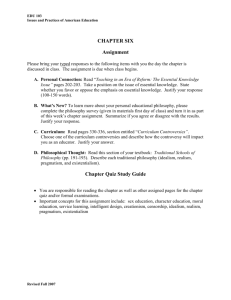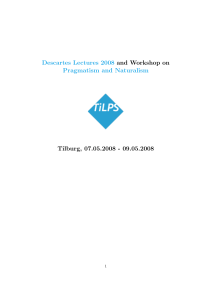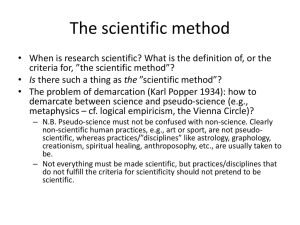Definition of Physical Education
advertisement

Definition of Physical Education PHYSICAL EDUCATION is an integral part of the total education process and has as its aims the development of: physically mentally socially & emotionally fit citizens through the medium of physical activities that have been selected and planned to achieve specific outcomes. PHYSICAL EDUCATION • is an integral part of the total education process • and has as its aims • the development of... physically mentally socially & emotionally fit citizens • • • through the medium of physical activities that have been selected and planned to achieve specific outcomes PHYSICAL EDUCATION is an integral part of the total education process and has as its aims the development of: physically mentally socially & emotionally fit citizens through the medium of physical activities that have been selected and planned to achieve specific outcomes. Chapter 4 Philosophy and Physical Education, Exercise Science and Sport Why Study Philosophy? •It is defined as the pursuit of truth. Why Study Philosophy? •It attempt to understand the meaning of things. Why Study Philosophy? • Developing a personal philosophy can improve your effectiveness as an HPERD leader. Why Study Philosophy? •A philosophy will influence your behaviors. Five Traditional Philosophies IDEALISM • Develop personality and mind • subject matter is important • methods: QA, lecture, discussions • teacher is more important than process IDEALISM • student developed as a whole person • evaluation is subjective/qualitative • resistant to change; physical is not as important as the mind. REALISM • trains students for life • subject is the focus of learning • drills, projects • teacher selects knowledge to learn REALISM • student develops as a whole person • evaluation is quantitative/scientific means • often too narrow viewpoint PRAGMATISM • Helps student to function in society • wide variety of subject matter • problem-solving is used • teacher is a guide PRAGMATISM • student learns about moral self • evaluation is subjective or self-evaluation • fails to give students stability NATURALISM • Development of whole person • subject matter is playoriented, individualized • problem-solving, informal methods NATURALISM • teacher is a guide, secondary to nature • individualized rate of learning • evaluation is based on individual goals • too simple for complex world EXISTENTIALISM • Self-actualization • wide selection of alternatives • freedom of action encouraged by teacher EXISTENTIALISM • teacher is a guide • focus on self-realization • evaluation is not important • lack of preparation for social life











